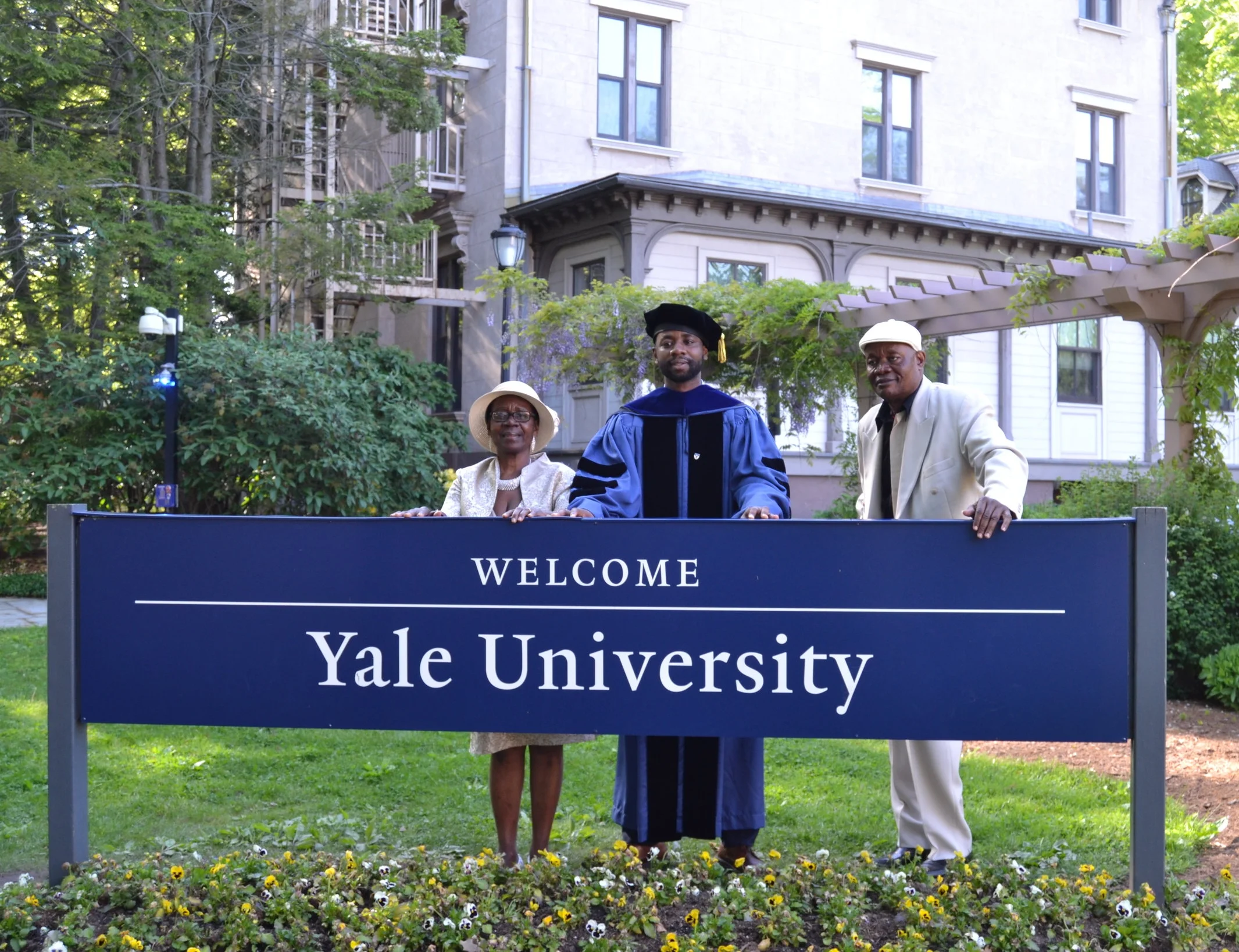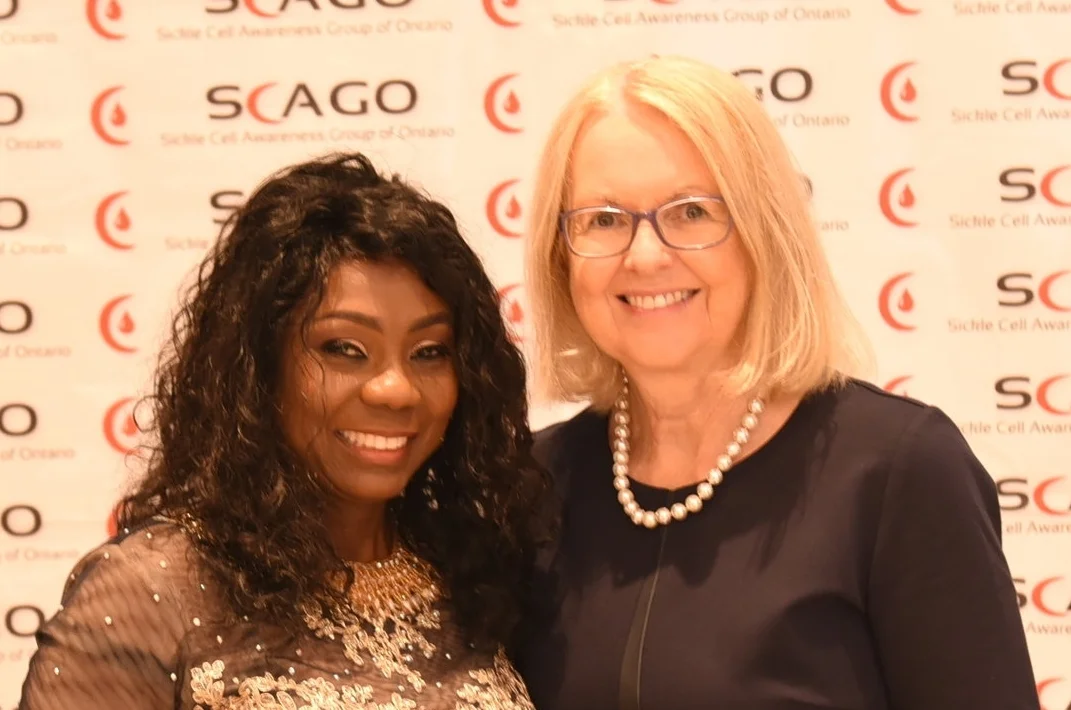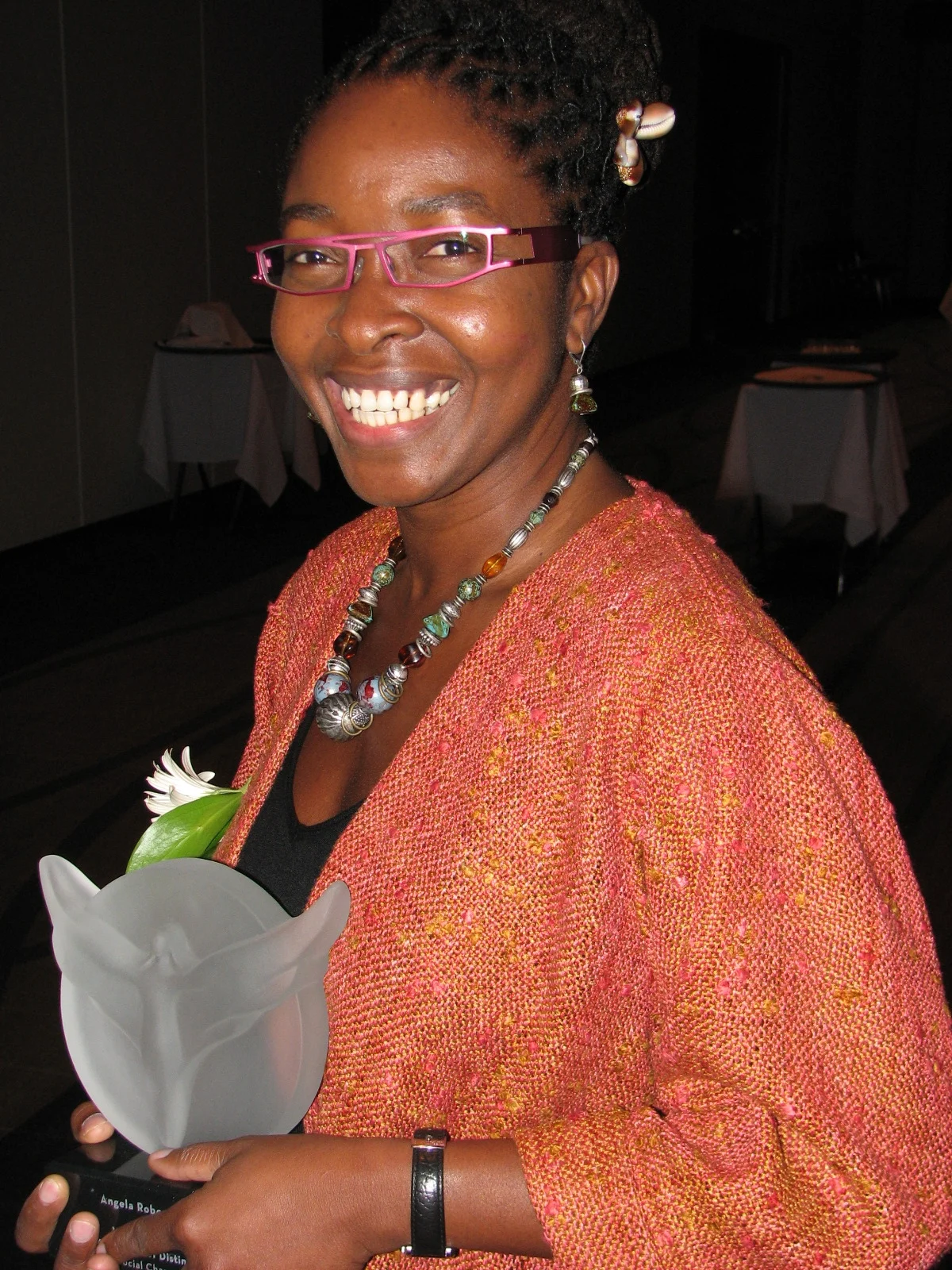Former Jane & Finch case manager earns doctorate at Yale
July 6, 2018
Where you come from doesn’t necessarily define you or determine where you end up.
Nobody knows this more than Wendell Adjetey who recently became the first Ghanaian-born to matriculate from Yale University with a Ph.D. in history.
Spending the first seven years of his life in a slum just outside Accra where most young people are unable to attend high school because of its unaffordability, he was extremely gratified that his parents, who didn’t have the privilege of a having a formal education beyond junior high, attended his graduation in New Haven.
“They did back-breaking work as janitors and made huge sacrifices, so it’s a hell of a big deal to see them so proud of their son graduating from university just as it was when my elder sister became the first in my immediate family to attend university and graduate with honours,” said Adjetey. “I cannot even begin to comprehend what they must be feeling. I might be a beneficiary of this incredible education, but this is for them.”
Reuniting with his parents in Canada in 1992, Adjetey was recognized with the university’s Willard Brittain Jr. leadership prize and three Graduate School of Arts & Sciences dissertation awards for his thesis, ‘From the North Star to the Black Star: African North Americans and the Search for a Land of Promise, 1919-1984’.
The experience of graduating from an Ivy League school hasn’t yet sunken in on the 2016-17 University of Toronto’s Massey College visiting scholar and senior resident fellow.
“I never expected that somebody like me would have the opportunity to go to a place like Yale and also be surrounded by incredible scholars, advisers and mentors who believed in me and my capacity to succeed and also use my craft as a historian to do good in the world,” Adjetey pointed out. “I never thought in a million years that someone from a working poor background would go to Yale, feel comfortable and be in place that cherished my values and history. That space also helped me build bridges to other communities and people.”
The success wasn’t achieved without trials and tribulations.
“For graduates doing a doctorate, it’s challenging not so much because of the content, but because Yale is extremely isolating,” noted Adjetey who was a Canadian delegate to the fifth UNESCO Human Rights Leadership Institute in 2009. “There is nothing romantic about it. It’s difficult in that environment where peers can be competitive and there are all sorts of life issues occurring side by side. I was tested and stretched, but having good people around me mitigated the challenges. If given the opportunity to pursue this endeavour again, I would take it up. I started this journey humbled and remain that way knowing that talent truly is universal, but opportunity is scarce and that in the grand scheme, I am absolutely nothing.”
Dr. Wendell Adjetey with his parents Sowah and Winifred
Recognized with the Keith Forde Youth of Excellence Service Award in 2012 for his academic achievements and community service, Adjetey counts curator and historian Dr. Sheldon Taylor and former Canadian Club of Toronto president Nick Chambers among his mentors.
Chambers was on the panel that selected him as a 2010 DiverseCity Fellow.
“I was struck by his humility, intelligence and his commitment to serving marginalized youth,” said Chambers who is a partner at Boyden Global Executive Search. “At the time, I was unaware of the extent of his academic and humanitarian ambitions. He claims he learned a lot from me over the years, but I am convinced I have learned a lot more from him. About a year ago, I heard him speak at the University of Toronto’s Munk School of Global Affairs about an important but mostly hidden period of race relations in Canada and was floored by his delivery and the mountain of research and analysis he managed to translate into a compelling hour-long presentation. Every now and then, we will get a peek into what he’s doing and we will be amazed by the impact of what he has managed to accomplish.”
Completing his undergraduate degree in international relations and history and a Master’s in political science at the U of T, Adjetey was a case manager in the Jane-Finch area with the $5 million federally funded Prevention Intervention Toronto program aimed at steering young people in the city’s designated priority neighbourhoods away from gang culture.
Following an increase in gun violence in the city in 2005, he started the Forster Terrace after-school program for young people residing in challenged communities. Through role playing, film and professional workshops, he taught non-violent conflict resolution techniques to the youths.
In 2014, he was a recipient of a Trudeau Scholarship that supports outstanding doctoral students who are committed to solving issues of critical importance to Canada and the world. A year earlier, the scholar was awarded the Canadian Studies prize for graduate students for his essay, ‘Saving Jimmy Wilson: Canadian Racial Consciousness and Alabama Justice 1958.’
Born in either 1903 or 1904, Wilson – an illiterate Black handyman who was convicted of stealing $1.95 from an 82-year-old White woman – was sentenced in 1958 to death by an all-White jury in an Alabama court. An appeal against the death sentence was unsuccessful at the state supreme court which held that the ‘the amount of the money taken is immaterial’.
The case received global coverage and petitions were sent demanding the overturn of the death sentence. Wilson was paroled in 1973 after serving 16 years in prison.
As an undergraduate student at U of T, Adjetey took 16 young people to the St. George campus to meet retired Superior Court Judge Romain Pitt and Dr. Sheldon Taylor and show the youths they belonged there.
“He got university T-shirts for them and he made them walk around the campus with their heads held high and let them know this is where they belong,” recalled Taylor who taught Adjetey three courses. “I think that tells you all you need to know about Wendell.”
Adjetey is a postdoctoral fellow at Harvard University.







